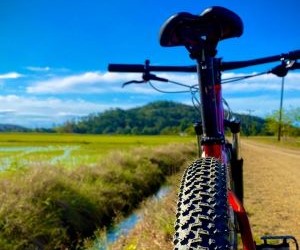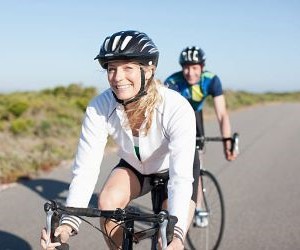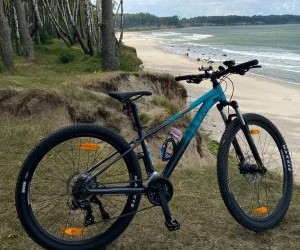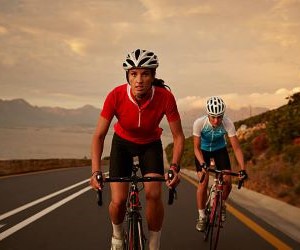Explore the best cycling and bike touring routes in Nadi, Fiji. Ride coastal roads, explore hidden villages, and soak up island vibes on two wheels.
WHAT ARE THE BEST TIPS FOR BIKE TOURING ON A BUDGET?
Bike touring doesn’t have to be an expensive adventure. With the right approach, cyclists can explore new regions and countries without draining their savings. From budget-friendly gear choices to smart camping tactics and meal planning, there are countless ways to stretch every dollar while still enjoying the freedom of the open road. This article breaks down proven tips and cost-saving strategies for cyclists looking to maximize their touring experiences without overspending.

Planning your budget tour
The foundation of a successful budget bike tour lies in strategic planning. Cyclists who invest time in research and preparation often save the most money on the road. Choosing the right destination, route, and timing can significantly influence expenses while ensuring the adventure remains enjoyable.
Choosing affordable destinations
Not all countries or regions are equally affordable for bike touring. Some offer extensive free camping opportunities, cheaper food options, and community support for cyclists. Researching living costs, road safety, and cycling infrastructure helps identify places where the experience is both affordable and rewarding.
Timing your trip wisely
Travel seasons greatly affect costs. Peak tourism months raise the price of lodging, transportation, and even food. Opting for shoulder seasons—spring or autumn in many destinations—offers cooler weather, fewer crowds, and lower costs. Flexibility with travel dates often makes a dramatic difference in budget efficiency.
Select countries with strong cycling cultures and affordable services.
Look for free or low-cost camping regions.
Avoid peak seasons to minimize expenses.
Use online forums and apps for budget travel advice.
Budgeting before departure
Building a realistic budget before leaving helps cyclists track spending categories like food, gear, accommodation, and emergencies. Using spreadsheets or mobile apps ensures transparency and avoids overspending. Setting aside an emergency fund is also essential for unexpected repairs or medical needs.
Ultimately, planning is where budget bike touring begins. Every dollar saved before departure frees up resources for longer rides, better meals, or unplanned detours that enrich the overall experience.
Saving on gear
Bike touring gear can quickly consume a budget, but smart cyclists know how to cut costs without sacrificing safety or comfort. Instead of buying everything new, creative solutions and second-hand markets provide excellent alternatives.
Smart bike and equipment choices
A reliable touring bike does not have to be the latest high-end model. Used bikes, older steel frames, or even refurbished hybrids can serve well when properly maintained. Simple gear systems are often easier to repair on the road, making them more cost-effective for long journeys.
Second-hand and DIY solutions
Thrift shops, online marketplaces, and community bike collectives often sell lightly used panniers, tents, and sleeping bags for a fraction of retail prices. For cyclists willing to get creative, do-it-yourself gear hacks such as homemade cooking stoves or repurposed bags can reduce costs further while adding a sense of resourcefulness to the trip.
Buy second-hand panniers instead of new ones.
Consider a used steel-frame bike for durability.
Repair gear instead of replacing it immediately.
Explore DIY hacks for cooking and storage.
Balancing cost and safety
While cutting costs is important, cyclists should never compromise safety. Helmets, lights, and basic repair tools should always be high quality, even if it means allocating a larger portion of the budget to them. The balance lies in knowing where to economize and where to invest wisely for long-term touring success.
Saving on gear is not just about spending less—it is about maximizing value, ensuring durability, and preparing for challenges that might otherwise derail the journey.
Food, lodging, and daily savings
The daily cost of bike touring comes from meals and accommodation. Smart cyclists learn how to minimize these recurring expenses without sacrificing nutrition or rest. By combining self-sufficiency with resourcefulness, budget-conscious riders thrive on the road.
Affordable food strategies
Cooking meals instead of eating out is one of the fastest ways to save money. A compact stove, basic cookware, and bulk ingredients allow riders to prepare healthy meals anywhere. Local markets often provide cheaper and fresher food than restaurants, giving both financial and nutritional advantages.
Low-cost lodging options
Camping remains the most budget-friendly accommodation option. Wild camping, when legal and respectful, eliminates costs altogether. For added safety and comfort, cyclists can use apps and networks such as WarmShowers, which connect travelers with local hosts offering free stays. Affordable hostels and community centers also provide occasional breaks from tents without breaking the budget.
Cook with local ingredients to reduce expenses.
Use WarmShowers for free accommodation.
Choose hostels or campsites strategically.
Plan meals in advance to avoid overpriced stops.
Daily cost-control habits
Budget touring is also about discipline in small daily habits. Reusing water bottles instead of constantly buying new ones, repairing gear immediately to prevent bigger expenses, and taking advantage of free public amenities like libraries or parks all add up over time. Consistency in these practices ensures the tour remains financially sustainable.
Cyclists who master the art of living simply on the road discover that touring is less about luxury and more about freedom, creativity, and connection with the journey itself.
YOU MAY ALSO BE INTERESTED








